From a 98-pound weakling who becomes a globetrotting force for freedom to a shy high school student transformed by a freak spider bite into a wall-crawling phenom, Marvel Comics has crafted some of the most iconic and enduring origin stories in popular culture. While many of these tales are straightforward accounts of ordinary people gaining extraordinary powers, a few stand out for the controversy they have generated. Whether due to offensive content, the reinforcement of problematic social attitudes, or controversial retconning and revisions, these origin stories have sparked significant debate within the Marvel fandom — often more for the ideas they explore than for their traditional superhero elements.
Videos by ComicBook.com
Here are our picks for the most contentious origin stories in the Marvel Universe. We will explore the tumultuous tales of beloved characters and examine the impact these narratives have on the characters, the comics, and the fans themselves.
Wanda and Pietro Maximoff – Scarlet Witch and Quicksilver

As a long-term member of the Avengers and possessor of one of the more intriguing abilities in the Marvel Universe, the Scarlet Witch is not only one of Marvel’s oldest heroes/villains but also one of its most popular. She’s also proven to be a key player in some of Marvel’s most memorable stories. Given her complex character, it’s no surprise that controversy surrounds her origin story. However, the controversy isn’t so much about how it came about, but rather about the numerous iterations of it that exist. First appearing in X-Men #4 as a member of Magneto’s original Brotherhood of Evil Mutants lineup, the Scarlet Witch – and her twin brother Quicksilver – were initially introduced as orphans with mutant abilities who were raised by Gypsies but rescued by Magneto.
However, this origin story was later retconned to reveal that the twins’ father was Magneto. But in Rick Remender and Daniel Acuña’s Uncanny Avengers #4, it was revealed that Wanda and Pietro are not Magneto’s children, but rather orphans who were taken in by the High Evolutionary, who later gave them to the Gypsy family that Magneto eventually found them with. According to this storyline, Wanda and Pietro are not mutants. Rather their powers were “gifted” to them by the High Evolutionary. Retconning is always controversial, but in the case of the Scarlet Witch and Quicksilver, the retconning has taken on multiple iterations, making their story more convoluted and complex than it needs to be. Indeed. The shifting origin story leaves their origins feeling unstable and, to some, annoying in their back-and-forth nature.
[ RELATED: 5 Most Controversial Marvel Villains ]
Luke Cage – Power Man
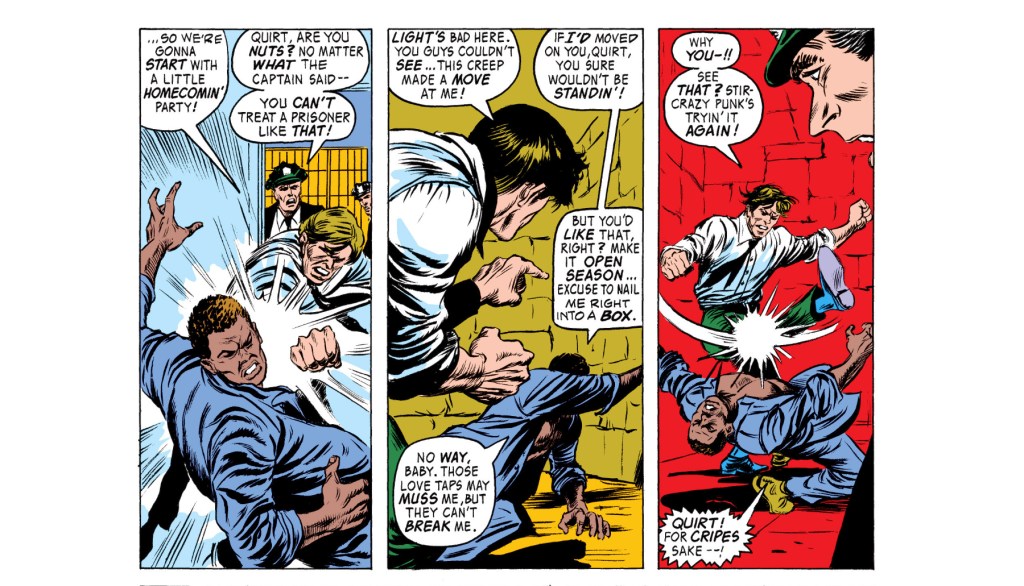
Like Spider-Man and Daredevil, Luke Cage is a superhero who embodies the idea of the “neighborhood hero.” Originally a gang member in New York’s Harlem, Cage attempts to leave his criminal past behind until he is framed by his former best friend, who resents him because his girlfriend prefers Cage. While imprisoned for a crime he didn’t commit, Cage endures regular abuse from the guards. Desperate for a way out, he volunteers for an experimental procedure. However, one of the guards who tormented him sabotages the experiment, hoping to kill Cage. Instead, the altered experiment grants him superhuman strength and unbreakable skin. Using these newfound abilities, Cage escapes prison and eventually dedicates himself to protecting his community as a hero.
Power Man’s origin story might seem fairly standard for the Marvel Universe, but its underlying themes and stereotypes make it more complex. When Marvel introduced him, Power Man was the first Black superhero to headline his own series. Yet his origin story perpetuated serious issues plaguing the Black community, both then and now: police brutality, institutional racism in the criminal justice system, the exploitation of Black prisoners in experiments, and wrongful imprisonment. By grounding his origin in real-world injustices —issues that were, and still are, highly contentious— Marvel made Power Man’s debut more controversial than most origins. While Marvel has worked to evolve Power Man into a more mainstream hero, even distancing him from some of his original themes like the Marvel Cinematic Universe’s omission of his gritty New York roots, his comic book origin nevertheless retains some questionable choices.
Shang Chi – The Master Of Kung Fu
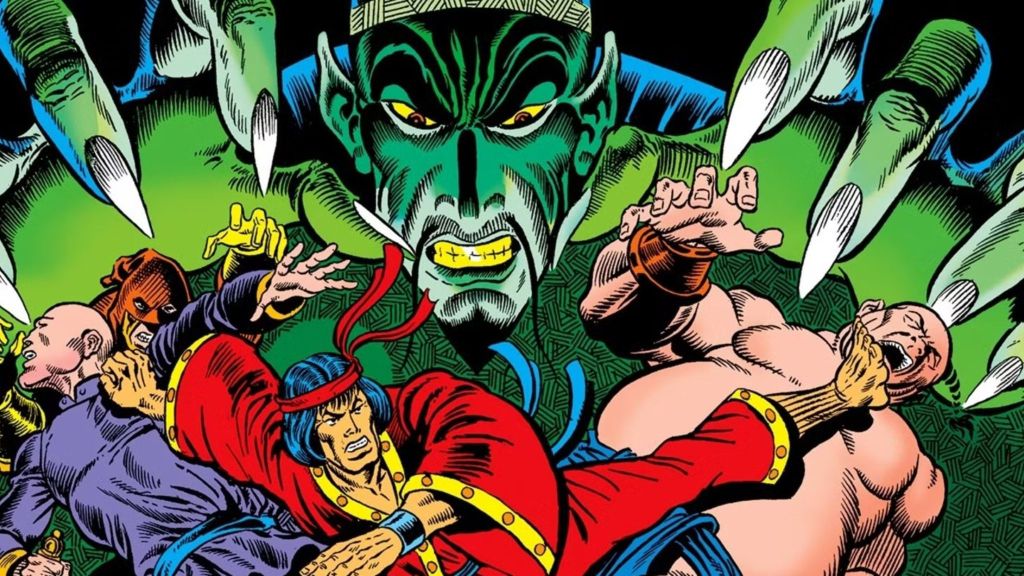
Shang-Chi offers another Marvel origin story that, at first glance, appears to follow the familiar “villain turns good” arc. In this instance, Shang-Chi’s journey begins in childhood. Trained from a young age by his father for a singular purpose – to enact vengeance upon his enemies – Shang-Chi initially believed these adversaries to be genuinely evil. However, during a mission in England to assassinate James Petrie, Shang-Chi uncovers the truth: his father is the true malevolent force. This revelation is so profound that Shang-Chi defects, dedicating himself to rectifying the wrongs he and his father have committed over the years, with the ultimate goal of defeating his father.
While the core narrative itself may not be inherently controversial, the character of Shang Chi’s father presents a complex issue. Originally, before his name was retconned to Zheng Zu, Shang Chi’s father in the comic books was known as Fu Manchu. This is the same name associated with a Chinese villain featured in numerous books, movies, and radio programs dating back to the early 20th century. The character of Fu Manchu was frequently depicted in a racist manner, characterized by exaggerated Asian features and aggressive anti-Western sentiments. These portrayals often reinforced Western stereotypes about supposed Asian animosity towards Americans and Europeans. In essence, Shang-Chi’s origin perpetuated offensive social attitudes towards East Asians in general, and Chinese people in particular.
David Haller – Legion
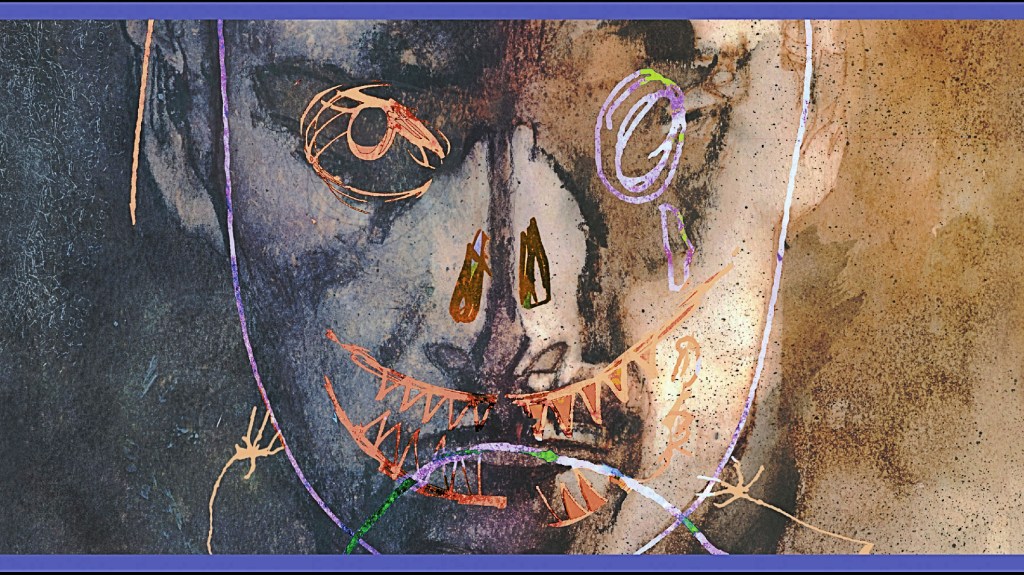
While Charles Xavier is often portrayed as the ideal mentor for troubled youth, there is a lingering sense of regret that he was unable to offer the same care to his own child. David Haller was conceived during a brief romantic encounter between a young Charles Xavier and Gabrielle Haller, a patient at the hospital where he was working. Their relationship ended before David was born, and Gabrielle chose not to inform Charles of her pregnancy.
Years later, after Gabrielle is attacked, David’s latent telepathic mutant powers are triggered—he kills the assailants and absorbs the mind of their leader. However, the trauma of the attack is so severe that David falls into a coma. During his years in this comatose state, his mind fractures into numerous alternate personalities—foremost among them the persona of the man who led the attack on his family. Each of these personalities controls different aspects of his vast telepathic and psychic abilities.
[ RELATED: The 5 Most Powerful X-Men Characters the MCU Needs to Debut ]
The controversy surrounding David Haller’s origin centers on two main issues. First, many critics find it offensive for the way it engages with sensitive themes of mental illness. Haller himself rarely exhibits his powers directly; instead, his abilities are typically expressed when one of his multiple personalities takes control of his psyche. In real life, discussions around similar mental health conditions—particularly dissociative identity disorder—are highly contentious. Some argue that the condition has a valid clinical basis, while others dismiss it as implausible or exaggerated.
Second, the notion of a comic book tackling such a delicate subject is troubling to some. On one hand, it can be seen as glorifying mental illness by portraying it as the source of one of the most powerful mutants in the Marvel universe. On the other hand, it may also be interpreted as pathologizing mental illness, since the manifestation of these abilities is categorized as a mutation—a condition often viewed as both a gift and a curse.
Johann Schmidt – The Red Skull
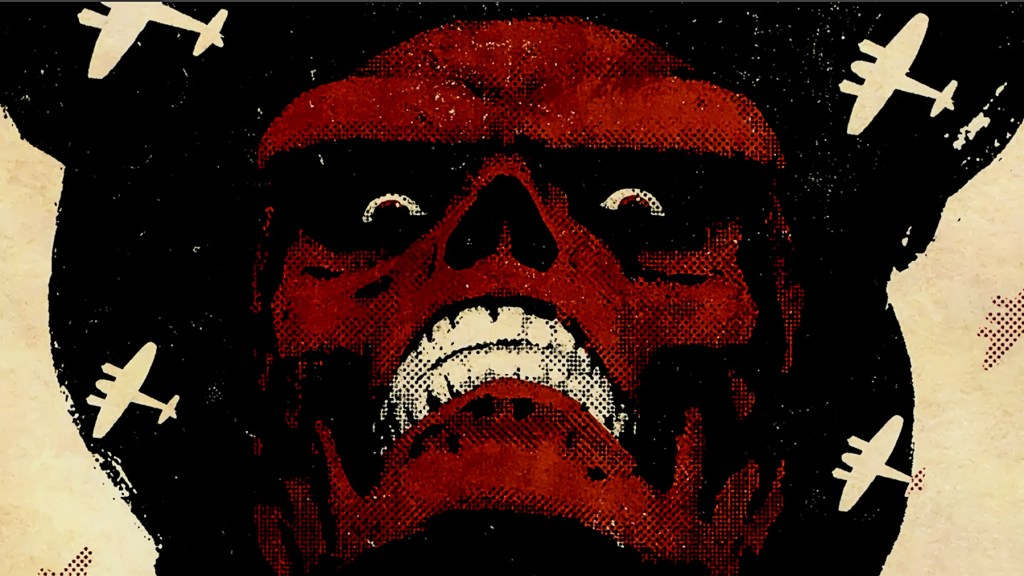
Captain America’s arch-nemesis, the Red Skull, had a deeply troubled childhood. His mother died giving birth to him, and his father, overcome with grief, took his own life. As a result, Johann Schmidt was placed in an orphanage. Dissatisfied with his life there, he eventually ran away and became a common street thug. However, while working as a bellhop, Schmidt had a chance encounter with Adolf Hitler, who took a liking to him. This meeting proved pivotal, as Hitler ultimately made Schmidt one of his most trusted lieutenants, granting him significant influence behind the scenes in both military and civilian Nazi operations during World War II.
The very fact that the Red Skull was so closely associated with Hitler and so deeply committed to realizing Hitler’s vision of the world is, in itself, highly controversial. This connection raises sensitive questions about how such themes are handled in popular media, particularly in a medium aimed at young audiences. While the historical link between the Red Skull and Nazism may have been understood when he was first introduced as Captain America’s enemy, that context may not be as evident today. As a result, some view his origin story as an attempt to sanitize his dark past while “buffing” the idea of Hitler and Nazism.
Robert Reynolds – Sentry
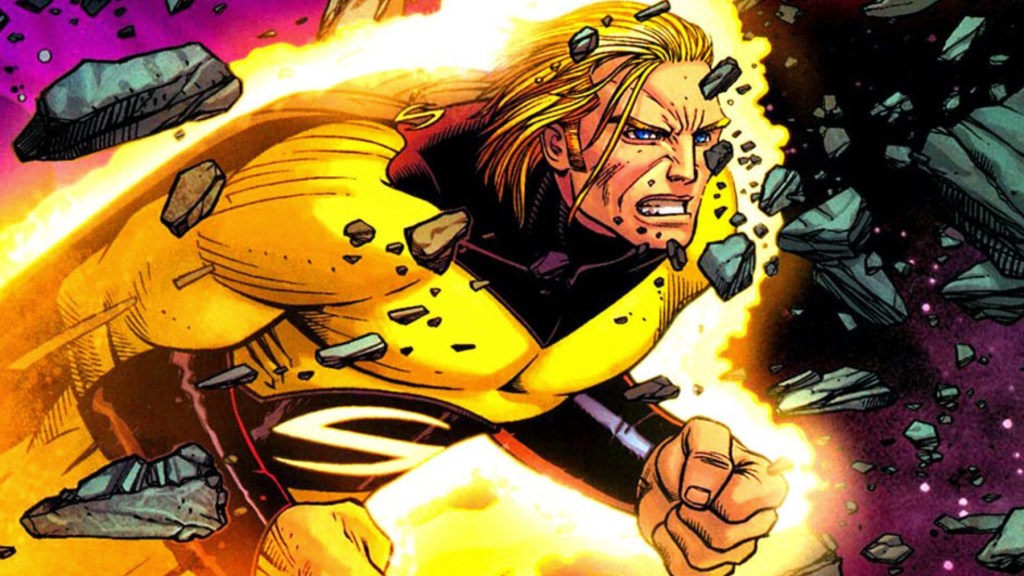
The Sentry is perhaps the most powerful human superhero in the Marvel Universe that most people don’t even know existed. Before gaining his abilities, the Sentry was Robert Reynolds, a mild-mannered high school student who one day steals drugs from his teacher in hopes of getting a quick high. As it turns out, the drugs included an enhanced version of the “Super Soldier” serum that the government had been working on in hopes of making a better “hero”. As a result, Reynolds gained the equivalent of “a million exploding suns” of power.
However, due to his psychiatric issues, he developed an alternate personality known as the Void, who was just as malevolent as Reynolds was benevolent. This dichotomy made him an extremely unstable and dangerous individual, who, despite his heroic intentions, could at times succumb to the dark and manipulative desires of the Void. The Sentry’s power level is so immense that he could easily dominate the Marvel Universe. However, his alternate superpowered persona —The Void— poses the greatest threat, both to himself and to the fabric of Marvel’s storytelling.
An obvious controversy surrounding The Sentry’s origin is that he introduces a Superman-like figure into Marvel lore — something that had never existed before and that Marvel fans once took pride in avoiding. Indeed, the idea that no one is truly absolute in the Marvel Universe is a fundamental talking point among its fandom. Even more controversial though is that despite The Sentry’s overwhelming power, his existence was erased from the collective memory of the entire Marvel Universe. In a paradoxical twist, not even The Sentry himself is aware of his immense strength.
The Origin of Marvel Superheroes
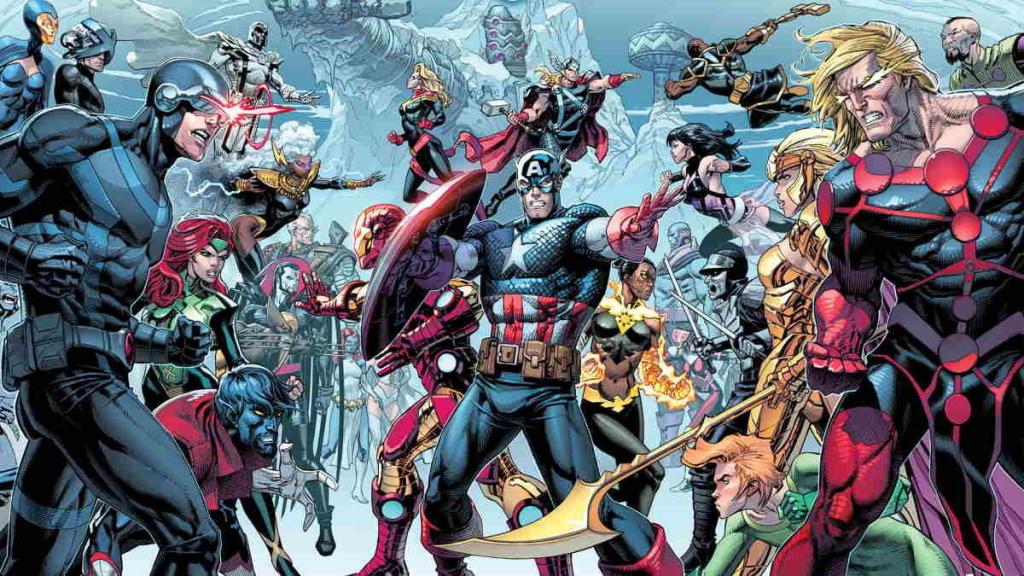
Perhaps the most controversial origin story in the Marvel Universe pertains to the origins of all superheroes — particularly those whose powers are linked to external influences, such as gamma radiation, “super” formulas, or self-made heroes like Iron Man and Black Panther. As revealed in Jason Aaron’s “Avengers,” most superheroes who gained special powers organically did not do so through natural or biological processes. Instead, their abilities are the result of Celestial experiments on humanity. This suggests that humanity did not possess an inherent capacity to produce superhumans until the Celestials began their ancient interventions with early humans.
This origin of superhuman abilities is controversial because it rewrites the history of superheroes in the Marvel Universe. For decades, the prevailing belief was that one aspect of human evolution was its capacity to produce superhumans. However, Aaron’s story challenges this notion, suggesting instead that humanity’s potential for greatness is not inherent but rather the result of cosmic manipulation. This perspective casts the concept of the superhuman and superhero in a completely new light, raising important questions about what it truly means to be a Marvel superhero.








